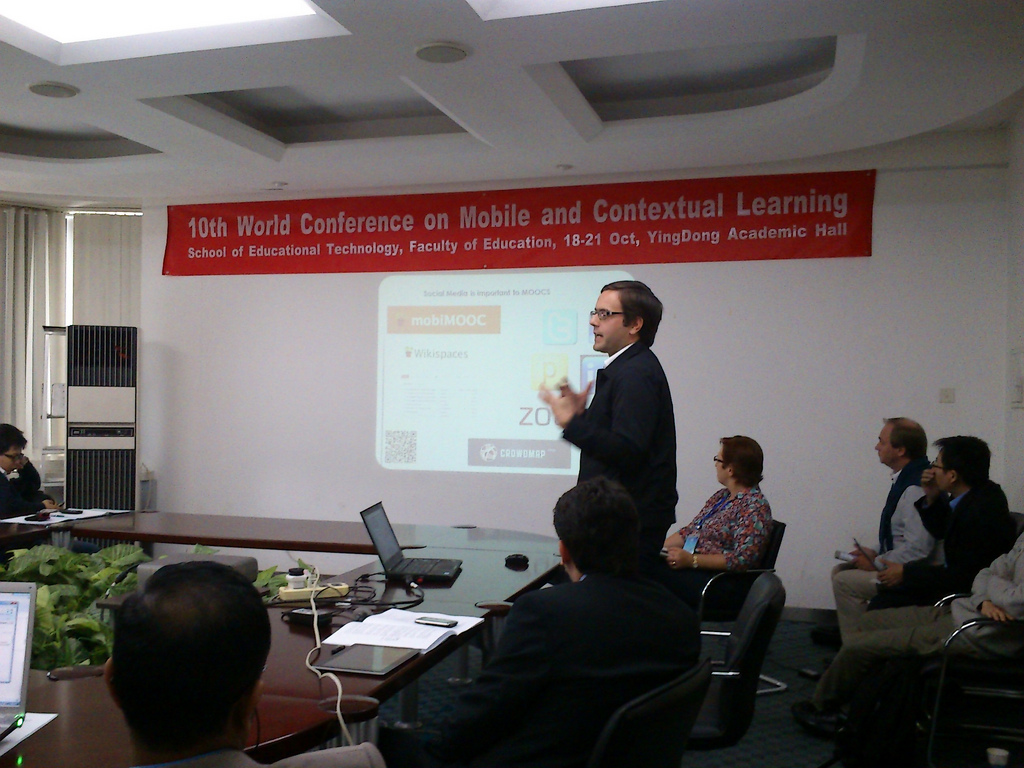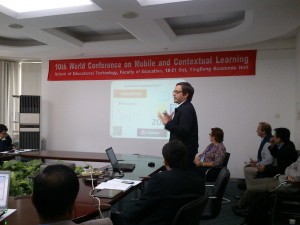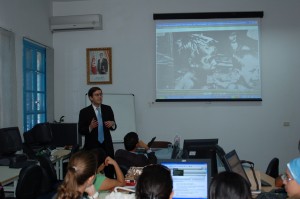In larger groups only consensus of existing ideas is reached, not innovation
A colleague of mine, Inge de Waard, had posted this to her blog as she follows and valiantly participates in UNESCO’s mobile symposium on learning. You can follow along on Twitter at #unesco_mlw . As a side note, it is good that UNESCO is involved in mlearning and how it might impact development. Glad to see them on board. Inge mentions her navigation through the conference agenda and how to participate in it, trying to get her voice heard (and a knowledgeable voice it is). For the purposes of this post, she mentions the following study on the limitations of large group brainstorming, a study that I wasn’t familiar with.
- Kohn, N. & Smith, S. (2010). Collaborative Fixation: Effects of Others’ Ideas on Brainstorming. APPLIED COGNITIVE PSYCHOLOGY. Published online in Wiley InterScience (www.interscience.wiley.com) DOI: 10.1002/acp.1699
The quote is taken from that study (at least Inge’s rendition of it) mentioning that large group brainstorms are basically consensus builders rather than innovation engines. This makes perfect sense and any teacher worth their salt will probably understand this classroom dynamic (brainstorms with large groups are exercises in the socially strong speaking and the timid listening). Of interest to me is what application this has for mobile learning in particular and online collaboration in general. What does this say about crowdsourcing innovation? Are we swayed reluctantly to consensus by our more visible, popular, established peers?
Let me save you the suspense. The answer is yes. We most certainly are led along the path to consensus via our participation in massive brainstorms (like the kind found commonly on Twitter). We are swayed by the popular academics, even our peers, often without thinking the matter through on our own accord. This is a social dynamic found both online and off.
(I wanted to be working with these people and learning from them, not standing there speaking-although mLearn 2011 was a very good conference)
So, does segmenting communities into working groups lead to innovation? Do we need to delineate smaller working entities to explore innovation? Do groups under a certain number naturally generate innovation (or even learning for that matter)? Is innovation even the target (in our leaders, yes; in our learners, not always)?
Practical application: conference agendas (as Inge is rightfully railing against). Why fixed agendas? Why not participatory design to investigate emerging themes? Why not collaborative practices to reflect open learning? I see some experimentation with this from some conferences; crowdsourced voting on interesting themes/topics. That is well and good. But why not a Meetup approach to conference design? Crowdsourced for both innovation and consensus, an emergent design (most likely wiki-based)? Ideas get discussed, refined, voted on, slotted, speakers emerge along with the design? Like Kickstarter, but without the money. Maybe. Why not have organizers/vendors sponsor small startup projects rather than viy for banner and booth space, handouts, and the like? We can all stimulate impact, all parties to this process.
Meetup’s tagline should be the mantra for all conference organizers:
Do something • Learn something Share something • Change something
That is a process that inspires (even embeds) motivation and ownership. It spurs innovation rather than merely consensus. Ownership. For mlearning, this ownership is important; it is the glue of the network one is trying to manufacture. Only participatory design can foster this ownership, whether it be m-agricultural communities or medical ones or academics engaged in meaningful dialogue (via SMS, social media, or what have you-my particular area of research focus). We participate because we helped build. Conferences should be capitalizing on this convergence of intellectual capital and experiment with emerging agendas and participatory design. They should, if only because I am bored to tears with many that I do attend.
(See, I am just standing there speaking. Lessons learned from years of public speaking: you are not the presentation, they are. Why not open a presentation, as well as a conference, with the question of what do you want to learn today?)


